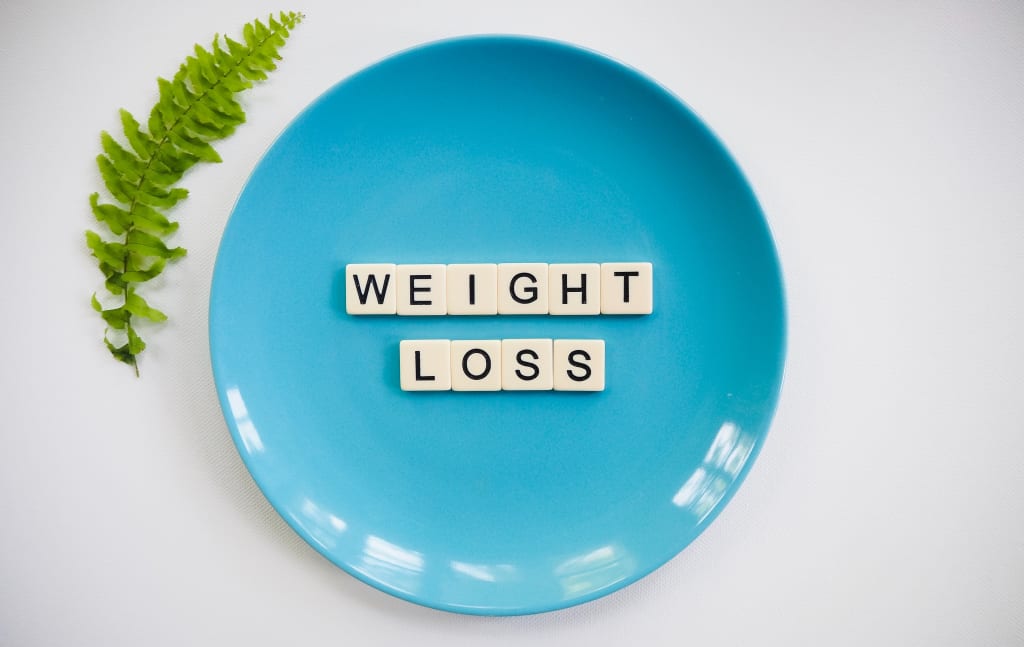How to lose weight doing almost nothing
Simple Strategies for Effortless Weight Loss

Certainly! Here's a more detailed response on how to lose weight with minimal effort or while doing almost nothing:
Losing weight requires a combination of healthy eating, regular physical activity, and lifestyle changes. However, if you're looking for ways to lose weight with minimal effort, here are several tips that can help you on your weight loss journey.
1. Mindful Eating and Portion Control:
One of the simplest ways to lose weight is to practice mindful eating and portion control. By paying attention to what and how much you eat, you can make significant progress. Here are some strategies to try:
a. Use smaller plates and bowls: This simple trick can make your portions appear larger, which can lead to consuming fewer calories without feeling deprived.
b. Chew slowly and savor your food: Eating slowly gives your brain time to register feelings of fullness, preventing overeating. Take the time to enjoy the flavors and textures of your meals.
c. Listen to your body's hunger and fullness cues: Eat when you're hungry and stop when you're satisfied. Avoid eating out of boredom, stress, or other emotional triggers.
d. Avoid distractions while eating: Eating while distracted, such as watching TV or using your phone, can lead to mindless overeating. Instead, focus on your meal and appreciate the eating experience.
2. Hydration and Beverage Choices:
Proper hydration is essential for overall health and weight management. Consider the following tips:
a. Drink water: Staying hydrated with water is crucial for weight loss. It helps control appetite, boosts metabolism, and aids digestion. Aim to drink at least 8 cups (64 ounces) of water per day.
b. Replace sugary beverages: Cut back on sugary drinks like soda, fruit juices, and energy drinks. These beverages are often high in calories and provide little nutritional value. Opt for water, unsweetened tea, or sparkling water instead.
c. Limit alcohol consumption: Alcoholic beverages are calorie-dense and can hinder weight loss efforts. If you choose to drink, do so in moderation and be mindful of the calories you're consuming.
3. Choose Nutrient-Dense Whole Foods:
Focusing on whole, unprocessed foods can be an effective strategy for weight loss. These foods are typically lower in calories and higher in nutrients, making them more satisfying. Incorporate the following into your diet:
a. Lean protein: Include sources such as chicken, turkey, fish, tofu, beans, and lentils. Protein helps keep you full and supports muscle growth and repair.
b. Fruits and vegetables: These are packed with vitamins, minerals, and fiber, which aid digestion and help you feel satisfied. Aim to fill half your plate with a variety of colorful fruits and vegetables.
c. Whole grains: Opt for whole grain options like quinoa, brown rice, oats, and whole wheat bread. They provide more fiber and nutrients compared to refined grains, keeping you fuller for longer.
d. Healthy fats: Incorporate sources like avocados, nuts, seeds, and olive oil. These fats provide satiety and support overall health.
4. Incorporate Light Physical Activity:
While you mentioned doing almost nothing, engaging in some light physical activity can still make a difference in your weight loss journey. Consider the following suggestions:
a. Take short walks: Walking is a low-impact exercise that can be easily incorporated into your routine. Aim to take short walks throughout the day, whether it's during your lunch break, after dinner, or while running errands.
b. Use the stairs: Opt for the stairs instead of elevators or escalators whenever possible. This simple change can increase your daily calorie expenditure and contribute to weight loss.
c. Stretch and move: Incorporate stretching exercises or gentle movements into your day. This can help improve flexibility, circulation, and overall well-being.
d. Increase daily activity: Look for opportunities to move more during your daily activities. For example, park farther away from your destination to get some extra steps, or do household chores with a bit more vigor.
5. Prioritize Sleep:
Getting enough quality sleep is crucial for weight management. Lack of sleep can disrupt your hormones, leading to increased appetite, cravings, and weight gain. Here's how to improve your sleep habits:
a. Establish a regular sleep schedule: Go to bed and wake up at consistent times to regulate your body's internal clock.
b. Create a sleep-friendly environment: Make your bedroom comfortable, cool, and dark. Remove electronic devices or use blue-light filters to minimize disruptions.
c. Limit caffeine and stimulants: Avoid consuming caffeine or other stimulants close to bedtime, as they can interfere with your sleep quality.
d. Practice a bedtime routine: Wind down before bed by engaging in relaxing activities such as reading a book, taking a warm bath, or practicing relaxation techniques like deep breathing or meditation.
6. Manage Stress:
High stress levels can contribute to weight gain and hinder weight loss efforts. Incorporate stress management techniques into your routine:
a. Practice mindfulness: Engage in activities that promote mindfulness and help you stay present, such as yoga, meditation, or deep breathing exercises.
b. Find enjoyable activities: Participate in hobbies or activities that bring you joy and help you relax. It can be anything from painting, gardening, playing a musical instrument, or spending time with loved ones.
c. Prioritize self-care: Take time for yourself and engage in activities that promote self-care and well-being. This can include taking bubble baths, reading, journaling, or practicing gratitude.
d. Seek support: If stress becomes overwhelming, consider seeking support from friends, family, or a mental health professional. They can provide guidance and strategies to manage stress effectively.
Remember, while these tips can help with weight management, incorporating more significant lifestyle changes and regular physical activity will likely yield more substantial and sustainable results. Consult with a healthcare professional or registered dietitian for personalized advice and guidance on weight loss strategies that best suit your needs.





Comments
There are no comments for this story
Be the first to respond and start the conversation.